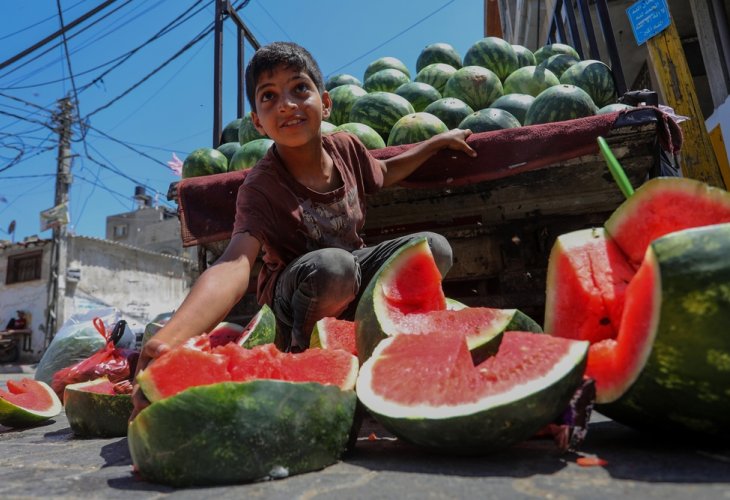Interesting
The AI Illusion: Fake Images Fueling Pro-Palestinian Narratives
Viral images portraying the IDF in a negative light have been revealed to be artificially generated fabrications.

While Israel celebrates the rescue of four hostages from Gaza, pro-Palestinian activists have taken to social media to protest the destruction in the Nusirat neighborhood. Some argue that the IDF should have announced their intentions beforehand. Alongside this criticism, images have surfaced showing children in Gaza scrambling for food, as part of a broader attempt to sway public opinion.
One viral image shared on X (formerly Twitter) showed children struggling to keep a cartload of watermelons from spilling. The image generated numerous reactions, with some highlighting the supposed 'brutality' of IDF soldiers. However, it was soon revealed the image was not real, but created using artificial intelligence.
At first glance, something seems off: the children's bodies appear unnatural, making it clear the image isn't genuine. A journalist from Gaza who shared the picture faced criticism for circulating unreliable information and subsequently removed it from his account.
This isn't the first time fake images have been used online to influence public opinion. Last month, an AI-generated image of refugee tents was shared to frame the IDF as immoral. The image went viral but was quickly debunked as fake.
Another recent image, distributed under the slogan "All eyes on Rafah," was also revealed to be AI-generated. These incidents have sparked widespread dialogue and criticism about how the era of artificial intelligence facilitates the creation of numerous online forgeries.

